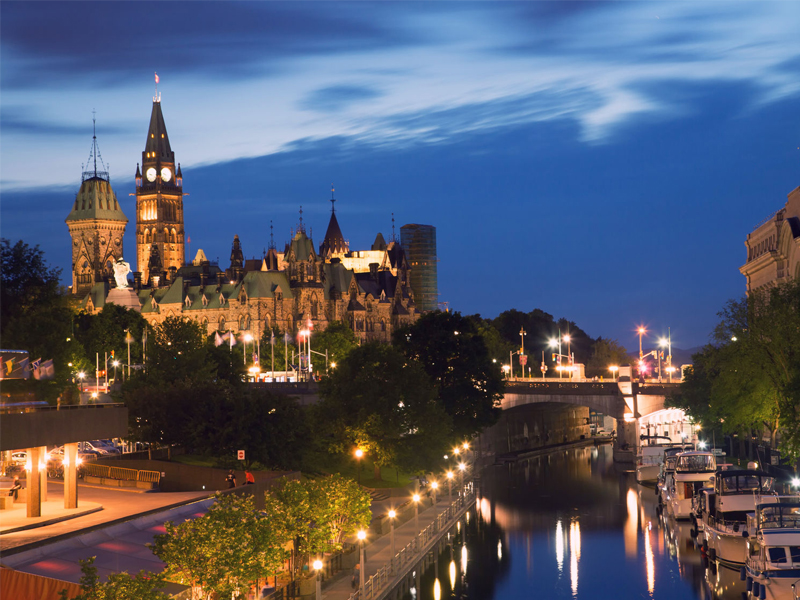
Justin Trudeau’s Liberals survived a contentious, scandal-plagued election year to emerge with a minority government after Monday’s vote.
The Liberals had won 157 seats at press time, beating the 121 seats for Andrew Scheer’s Conservatives. Jagmeet Singh’s New Democratic Party had won 24 seats, while a reinvigorated Bloc Québécois won 32.
Elizabeth May’s Green Party won 3 seats, while Maxime Bernier lost his own seat and his People’s Party was shut out. Independent candidate Jody Wilson-Raybould was leading the remaining riding, Vancouver Granville, at press time.
The Liberals staked their re-election on a plan to combat climate change and lower taxes for the middle class. Trudeau promised to raise the basic personal amount by almost $2,000, to $15,000, for people earning less than $147,000 per year.
After instituting a carbon tax last year, the Liberals promised to raise the per-tonne price and to get Canada to net-zero emissions by 2050.
The party also pledged to boost Old Age Security by 10% for seniors over 75 who earn less than $77,580, and raise the Canada Pension Plan survivor’s benefit by 25%.
Trudeau offered no timeline for balancing the budget, pledging to keep the federal debt-to-GDP ratio on a downward trend.
After winning a majority government in 2015 and enjoying broad popularity for a couple of years, the Liberals faced controversy in the second half of their mandate. Changes to tax rules for small businesses around passive income and income splitting faced a backlash among doctors, dentists and other private corporation owners, forcing a partial retreat.
The scandal this year around the government’s handling of SNC-Lavalin’s efforts to secure a deferred prosecution agreement, and old photos that surfaced in September of Trudeau in blackface and brownface, dogged the Liberals throughout the campaign.
The Liberal win means proposals from the 2019 federal budget that haven’t been legislated will likely receive renewed attention.
Over the summer, the government introduced draft legislation for a number of items that weren’t part of the budget implementation bill passed in June.
The Liberals proposed a $200,000 limit for employee stock options at large companies taxed at a preferential rate. The comment period on the draft legislation ended in September.
The fund industry has already been adapting in anticipation of the new rules constraining how ETFs and mutual funds deduct income or capital gains when unitholders redeem units.
The comment period for legislation to allow for advanced deferred life annuities and variable payment life annuities ended Oct. 7, though industry experts said there’s little time for companies to produce products for 2020 if legislation is passed this fall.
Other budget proposals included in the draft legislation related to individual pension plans and Registered Disability Savings Plans.
Governing from the left?
A minority government means the Liberals will have to find support from other parties in the House of Commons to pass legislation. According to the seat count at press time, the Liberals would need backing from either the NDP or the Bloc for a majority of votes.
Singh’s NDP campaigned to boost government spending for programs such as pharmacare, financed by taxes on the wealthy. The NDP pledged to increase corporate taxes and income tax for top earners, raise the inclusion rate on capital gains tax to 75%, and tax rich families 1% annually on wealth exceeding $20 million.
Singh listed a universal pharmacare and dental care program, reducing emissions, and the “super wealth tax” among the priorities for supporting a minority government.
Other Liberal pledges
The Liberals made a number of campaign promises related to housing, taxation and social policy. Here are some that may impact your clients:
- increase the Canada Child Benefit by 15% for parents of children under the age of one, and make maternity and parental benefits tax-exempt at source;
- allow mortgages of up to $750,000 to qualify for the first-time homebuyer incentive in the most expensive housing markets;
- “crack down” on corporate tax loopholes that allow businesses to deduct debt from earnings to reduce taxes;
- impose a 10% luxury tax on vehicles that cost more than $100,000;
- cut the cost of federal incorporation to $50 from $200;
- double the child disability benefit;
- cut corporate taxes in half for companies that develop and manufacture zero-emissions technologies; and
- introduce a 15-week leave for adoptive parents.